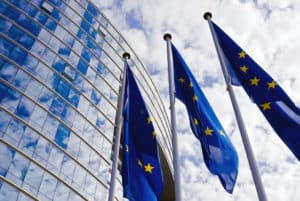 The European Securities and Markets Authority (ESMA) has released a public statement on the implications of Russia’s invasion of Ukraine on investment fund portfolios.
The European Securities and Markets Authority (ESMA) has released a public statement on the implications of Russia’s invasion of Ukraine on investment fund portfolios.
ESMA stated that it recognises the human cost of Russia’s military aggression against Ukraine, as well as the major challenges that the invasion poses to business activity and the global economic and financial system.
The public statement, which aims to improve investor protection and convergence, provides fund managers with guidance on the appropriate action in situations where exposures to Russian, Belarusian and Ukrainian assets exist, given valuation and liquidity uncertainties. It also outlines how fund managers should evaluate these assets, and whether side pockets should be considered to segregate them.
ESMA wants investment funds to be managed in the best interest of investors, ensuring that fund managers have adequate liquidity management systems in place and that assets receive a fair valuation.
The regulator stated that as a general principle, fund managers of investment funds with exposures to assets facing liquidity issues need to assess whether a fair value of these assets can still be determined and adapt the valuation without undue delay.
A consistent approach to the valuation of assets needs to be followed by fund managers in line with EU and national law and a one-size-fits-all approach should be avoided, whereby all assets facing liquidity issues are written down to zero by default.
“Where fund managers of investment funds with material exposures to assets facing liquidity issues reach the conclusion that a fair value can no longer be determined, or that the subscription or redemption of shares or units at the current market price is not in the best interest of investors, consideration should be given to suspending temporarily both subscriptions and redemptions as an immediate measure aimed at mitigating the risks of dilution or arbitrage by incoming and outgoing investors,” ESMA said.
In relation to the Russian invasion of Ukraine, managers may assess whether additional actions, rather than a prolonged temporary suspension that prevents existing investors from accessing liquidity, are more desirable from an investor protection standpoint in some situations.
This could include the total write off of the relevant assets, the liquidation of the fund or the segregation of assets that have become illiquid or non-tradable as a result of Russia’s invasion of Ukraine.
The consideration as to whether to use side pockets to segregate assets that have become illiquid or non-tradable is a central question that ESMA is keen to address.
It highlighted two benefits that side pockets could provide. Firstly, investors that require liquidity can still withdraw funds from the liquid portion of the investment fund’s portfolio at a presumably low liquidation cost.
Secondly, the strategy safeguards the interests of investors who want to stay in the investment fund because the fund manager is not forced to liquidate assets at or below market prices in the event of high redemption demand.
ESMA did, however, note that side pockets could potentially pose some risks, including potential moral hazard problems, which some national competent authorities (NCAs) are concerned about.
In addition, illiquid assets transferred to side pockets are not guaranteed to become liquid or acquire value in the future, which means that in some situations, writing off relevant assets from the start could have saved investors’ money on side pocket development.
Looking at the next steps ESMA intends to take, the securities markets regulator said it would “continue to closely monitor the situation and take or recommend any measures necessary to mitigate the impact of the Russian invasion of Ukraine on investment funds.”